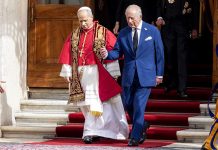In the North-western part of the United States – Washington, Oregon and Northern California – people are not very social. The weather and the people are cold. Many are shy and scared to introduce themselves to others. They make assumptions about each other in an instant and struggle to make friends. In some cities they talk about a “freeze-out”. People that move to the city and don’t know anyone struggle socially. Cloudy skies, constant rain and no friends makes it difficult to be happy. It starts to feel like you are alone or even like all those strangers are working against you.
When I began my trip to Accra, I didn’t know what to expect, but the kindness of Ghanaians became obvious before I left the US.
Waiting in line for the plane to Accra, a Ghanaian man approached me and asked me where I was going. He seemed pleasantly surprised when I told him I was flying to Accra. This would never happen in Oregon. There, people rarely approach strangers and when they do it’s not friendly. They make a small complaint or point out something that bothers them. We call it passive aggression.
The plane from NYC to Accra was very full and seemed to be mostly Ghanaians: families, businessmen, people visiting home. While waiting for the plane, people smiled, talked and laughed. They called out to each other from across the terminal and made jokes. This was an incredible sight. Airplane terminals in the US are normally depressing. People don’t smile. They sleep and whisper and eat their food in silence.
This is even worse in the state of Oregon, where I come from. People are so scared to interact with others that they can’t tell others how they feel. When they like someone they don’t show it and when they don’t like someone they disappear.
In other words, Ghana is much warmer than Oregon and it’s not just the weather. There are so many things that people do in Ghana that have made me feel welcome.
In Oregon, and much of the US, dancing can be an awkward thing. Many people are scared to dance, especially men. Here in Accra the dance floor seems appealing and fun.
I had dinner at a place called Chez Afrique my first night in Accra. Warm conversation filled the air as people moved between tables and saw their friends sitting down to eat. As the band started to play people began to dance beneath the canopy. I wanted to join them.
A couple of days later I got to participate in a dancing class at the University of Ghana. One of the first things I was told was that dancing is a group activity and that we were there to express how we felt and not worry about the rest.
This is very different from the US, where people crowd around a single dancer expecting to be entertained and the dancer is surrounded by judgmental eyes.
Dancing is not the only thing that people fear in the United States. Many are scared to embrace others. As a young man I was taught to give a quick firm handshake and anything like hugging was reserved for family and close friends. Hugging other men was rare.
Since I have been in Ghana, I have noticed long lingering handshakes, frequent hugs and thanks to a friend I’ve been practicing my snaps at the end of every handshake. But it is more than just these small gestures. When I see people for a second time their enthusiasm is clear. When we speak, they make eye contact and aren’t looking at their phone.
These things are not normal in the US, and it makes a big impact. If talking to strangers, giving hugs and dancing were more common in Oregon people might be happier. They could learn a few things by coming to Ghana.
Jake Moore, Intern








